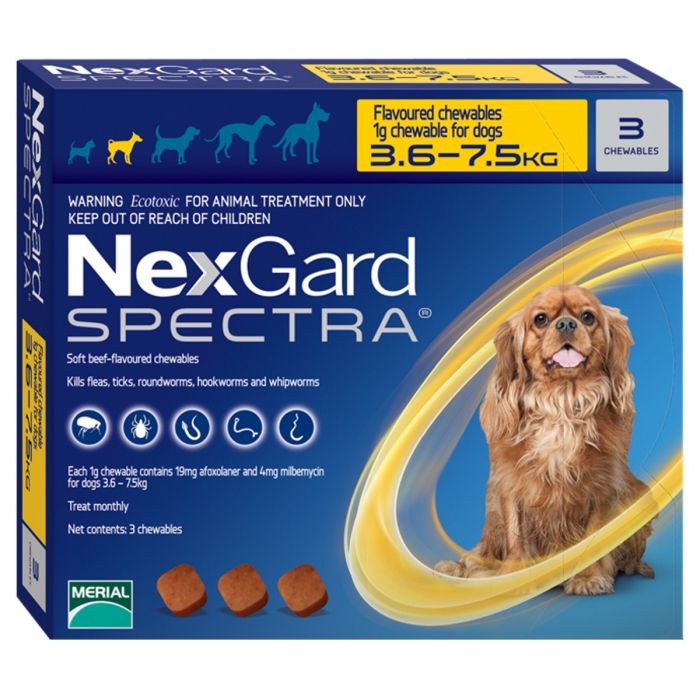Does Nexgard Prevent Heartworm
As pet owners, we prioritize our furry companions’ health and well-being. One crucial aspect of pet care is protecting them from heartworm disease, a serious and potentially fatal condition caused by parasitic worms. In the quest for effective preventive measures, many turn to products like Nexgard. But does Nexgard really prevent heartworm? Let’s delve into this question and uncover the facts behind Nexgard’s role in heartworm prevention.
Key Takeaways
- Nexgard disrupts heartworm larvae development effectively.
- Kills larvae transmitted by mosquitoes before maturing.
- Active ingredient afoxolaner targets larvae’s nervous system.
- Monthly chewable prevents heartworm, ticks, and fleas comprehensively.
- Consistent monthly administration is crucial for optimal protection.
How Does Nexgard Prevent Heartworm?
To prevent heartworm, Nexgard disrupts the development of heartworm larvae transmitted by mosquitoes. When a mosquito carrying heartworm larvae bites your pet, these larvae are transferred into your pet’s bloodstream. Nexgard contains an active ingredient called afoxolaner, which works by targeting the nervous system of these larvae, ultimately killing them before they can mature into adult heartworms.
By giving your pet Nexgard as directed by your veterinarian, you’re providing them with a proactive defense against heartworm disease. It’s crucial to administer Nexgard monthly, as missing doses can leave your pet vulnerable to heartworm infection. Remember, prevention is key when it comes to protecting your furry friend from the potentially deadly consequences of heartworm disease.
In addition to protecting your pet from heartworm, Nexgard also helps in the prevention of other common parasites, such as fleas and ticks. This comprehensive protection ensures that your pet can enjoy a healthy and active lifestyle without the worry of parasitic infections.
Understanding Heartworm Disease in Pets
Understanding Heartworm Disease in Pets starts with recognizing the dangers it poses to your furry companion. Heartworm disease is a serious and potentially fatal condition caused by parasitic worms that are transmitted through the bites of infected mosquitoes. Once inside your pet, these worms can grow and multiply, causing damage to the heart, lungs, and blood vessels over time.
Pets infected with heartworm may initially show mild symptoms like coughing, fatigue, and decreased appetite. However, as the disease progresses, more severe symptoms such as difficulty breathing, weight loss, and even heart failure can occur. It’s crucial to understand that heartworm disease is much easier to prevent than it’s to treat.
Prevention is key in protecting your pet from this devastating illness. By implementing a comprehensive prevention plan that includes regular use of preventive medications like Nexgard, you can greatly reduce the risk of your furry friend contracting heartworm disease. Stay informed, stay proactive, and keep your pet safe from heartworm.
Benefits of Using Nexgard for Prevention
Using Nexgard for prevention offers numerous benefits in safeguarding your pet against heartworm disease. Nexgard is a convenient monthly chewable that effectively protects your furry friend from heartworm infection.
One of the primary advantages of Nexgard is its ease of use. Unlike topical treatments, Nexgard is simple to administer and doesn’t require any drying time, making it a hassle-free option for pet owners.
Additionally, Nexgard not only prevents heartworm disease but also targets and eliminates ticks and fleas, providing comprehensive protection for your pet. This all-in-one approach saves you the trouble of using multiple products for different parasites.
Moreover, Nexgard starts working quickly to kill fleas and ticks, reducing the risk of diseases transmitted by these pests. By choosing Nexgard for heartworm prevention, you can ensure that your pet stays healthy and free from these dangerous parasites, giving you peace of mind and your pet a happy, active life.
Nexgard Vs. Traditional Heartworm Preventatives
When comparing Nexgard to traditional heartworm preventatives, you’ll notice significant differences in their effectiveness and convenience. Nexgard is an oral chew that needs to be administered monthly and is highly effective in preventing heartworm disease in dogs. On the other hand, traditional heartworm preventatives like topical treatments or injections may require more frequent administration and may not be as convenient as a once-a-month chewable tablet.
Nexgard works by killing adult fleas before they can lay eggs, breaking the flea life cycle. This can be advantageous over traditional preventatives that may only target either fleas or heartworms. Additionally, Nexgard is easy to administer and is often well-tolerated by dogs, making it a convenient choice for pet owners. Traditional preventatives may involve multiple steps or applications, which can be cumbersome and less appealing to pet owners. Overall, Nexgard’s effectiveness and convenience make it a popular choice for preventing heartworm disease in dogs.
Tips for Ensuring Nexgards Effectiveness
To maximize Nexgard’s effectiveness in preventing heartworm disease in your dog, what simple yet crucial step should you ensure? Consistency is key.
Ensuring that you administer Nexgard to your furry friend on a regular, scheduled basis is essential for its effectiveness in preventing heartworm. It’s important to give Nexgard to your dog as directed by your veterinarian, typically once a month.
Skipping doses or being inconsistent with the treatment schedule can compromise Nexgard’s ability to protect your pet from heartworm infection. Set a reminder on your phone or mark your calendar to help you remember when it’s time to give Nexgard to your dog.
Frequently Asked Questions
Can Nexgard Be Used in Combination With Other Heartworm Preventatives?
Yes, you can use Nexgard in combination with other heartworm preventatives. It’s important to consult your vet for the best approach. Keep your pet protected by following their advice on combining different preventatives for optimal coverage.
Are There Any Known Side Effects of Using Nexgard for Heartworm Prevention?
When using Nexgard for heartworm prevention, it’s essential to know potential side effects. Keep an eye out for signs like vomiting or diarrhea. Don’t hesitate to consult your vet if you notice any unusual symptoms.
How Often Should Nexgard Be Administered to Effectively Prevent Heartworm?
To effectively prevent heartworm, administer Nexgard as directed by your veterinarian. Stay consistent with the dosing schedule provided. Following the recommended administration frequency is crucial for Nexgard to be successful in warding off heartworm infections.
Can Nexgard Be Used in Puppies or Pregnant Dogs to Prevent Heartworm?
Yes, Nexgard can be used in puppies or pregnant dogs to prevent heartworm. It’s essential to follow your vet’s advice on dosage and frequency to ensure the best protection for your furry friend.
Is Nexgard Effective Against All Stages of Heartworm Infection in Pets?
To keep your pet protected, ensure Nexgard is given regularly as prescribed by your vet. Remember, it’s vital to follow the dosing schedule precisely to effectively combat all stages of heartworm infection in your furry friend.
Conclusion
In conclusion, Nexgard is an effective preventative measure against heartworm in pets. By regularly administering this medication, you can protect your furry friend from the dangers of this potentially fatal disease.
Remember to consult with your veterinarian for the best advice on how to keep your pet safe and healthy. Trust Nexgard to keep your pet protected and give you peace of mind.








